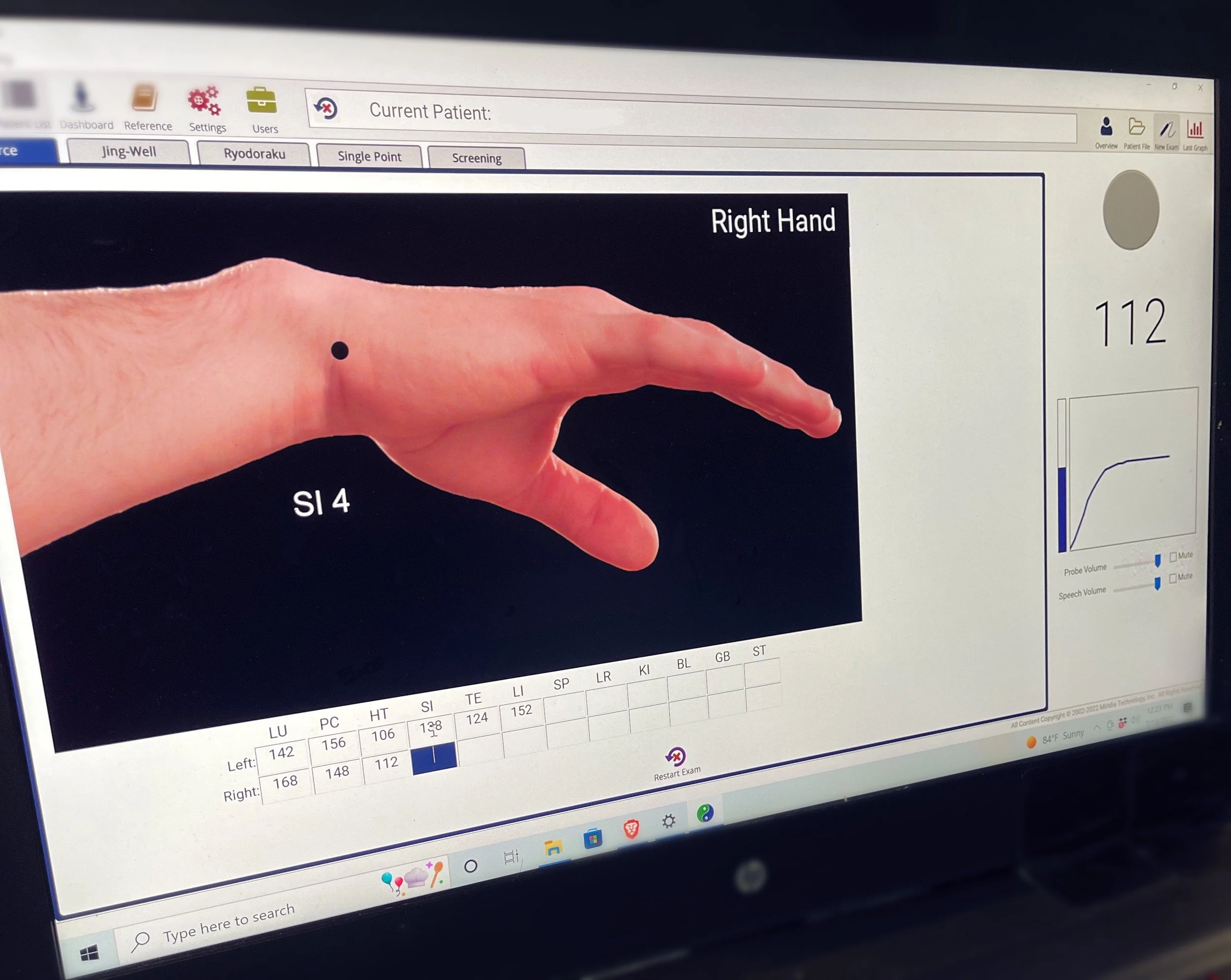
Consultation
What to expect
During your consultation, you will be receiving a diagnostics report to help you understand your body as a whole and will allow us to treat you even better.
Consultation & AcuGraph Assessment
*We do not work directly with health insurance companies. To inquire about treatment programs, please contact us.
Please read our Frequently Asked Questions before scheduling your consultation appointment.
Upon your first visit, first you will receive a consultation and an AcuGraph Meridian Assessment. Your consultation consists of discussing your issues, ailments, and medications with Dr. Quan before beginning your treatment program.
Your AcuGraph Meridian Assessment will help us (and you!) understand your body as a whole, and will allow us to find the source of your ailment and how to better treat you.
The assessment will consist of our diagnostics specialist placing a damp cotton swab connected to an EMF reader onto 24 acupuncture points on your hands and feet. Each acupuncture point will show a numerical reading dictating the current state of your body’s meridians.
The AcuGraph Meridian Assessment will then list other symptoms you may experienced based on your reading, physical and emotional states, as well as suggestions for food to incorporate into your diet. It is a very detailed reading, and will help Dr. Quan treat you more accordingly to your body’s needs to bring your body back to balance.
You will be asked to drink a cup of water and remove your shoes, socks, and anything worn on the wrist before your assessment.
A patient’s original meridian assessment below; above, their vastly improved numbers three days after treatment.
understanding your meridians will allow us to give you the best treatment we can for you.
About Acugraph
AcuGraph is modern EMF technology with foundations in Japanese Ryodoraku acupuncture and thousands of years of acupuncture and Traditional Chinese Medicine. It takes readings of your body’s meridians, or road maps that travel bilaterally throughout your body.
Each of the 12 regular or principal meridians is associated with a Chinese organ, such as the heart, pericardium, lung, spleen, liver, kidney (the yin organs) and stomach, gallbladder, large and small intestine, urinary bladder and triple energizer (the yang organs).



